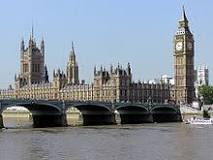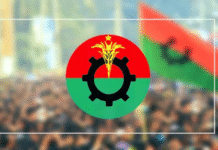
F R Chowdhury
I understand that recently the Government in Bangladesh has decided that the minister in charge of a ministry shall act as the chief executive officer of the relevant ministry. This is wrong. The minister is a member of the cabinet, and so far it relates to that ministry, s/he is the government. This is simply because the minister is the only person in that ministry elected by the people and the rest are all civil servants.
In the parliamentary system of democracy, the head of the state invites the leader of the majority party to form a government. The party or coalition leader forms a government in the shape of the cabinet with himself/ herself as the prime minister and runs the country as its chief executive on behalf of the head of the state. It is customary for the king/ queen or the president to grant an audience to the prime minister once every alternate week to brief the head of the state about the state of affairs. The civil servants continue to remain in their position. Their services are automatically placed at the disposal of the new government. They perform their duties in the same manner as before out of any political influence. Civil service is not part of the government. They provide the support to the government to implement its plans, projects, and objectives. Government is elected by people. They come and go. Civil servants are supposed to be immune to party politics. They provide the necessary link to continuity.
Normally once a week there is a cabinet meeting chaired by the prime minister. It is at the cabinet meeting that the government discusses all its plans and programs; and reviews development activities. Each minister presents his/ her case, and the prime minister gives final decisions after listening to pros and cons. The cabinet secretary (the senior most civil servant) attends the meeting and acts as the coordinator amongst the ministries. A minister may also contact the prime minister other than the cabinet meeting whenever so required.
The minister in charge of the ministry then becomes the government so far the operation of his/ her ministry is concerned to carry forward the decision of the cabinet/ government. The civil servants in the ministry according to their rank, status and responsibility provide the support. The secretary to the government in any ministry is the senior most civil servant within the ministry and acts as the chief coordinator and may be considered to be the chief executive officer reporting to the minister in charge.
Once the budget is passed, various departments and agencies get their share of financial resources, and it is the secretary to the government to ensure that it is utilized in the right manner and reconciled. The office of the auditor general inspects the records to ensure that there is no un-authorized expenditure and that documented procedures are followed. The secretary to the government remains the chief accounting officer for the respective ministry and advises the minister accordingly. The minister is neither the chief executive officer nor the chief accounting officer. S/he is above that.
I think things will become clearer when we talk regarding a specific ministry. Take the example of the ministry of shipping. It has some departments/ organizations/ agencies such as – Chittagong port authority (CPA), mongla port authority (MPA), department of shipping (DOS), BIWTA, BIWTC, BSC, the marine academy (MA) and seamen’s training center (STC). Each one is headed by a chairman or director general or managing director or chief executive. Each of them enjoys the status of a head of the department through their rank and status may vary. According to rules of business of the government, during the second half of the financial year, the head of the department may make relocation/ readjustment of the remaining financial resources for better utilization.
I think before I conclude this article I shall draw attention the role of the government and civil servants in a democratic society. Let us talk about the Merchant Shipping Act (MSA). It will be evidently written – “the government shall appoint a director general who shall ensure proper compliance with the provisions of this act and shall remain accountable and answerable to the government.” – As soon as the law comes into force, all operational powers vested in the government is transferred to the director general. The government should make sure that a competent and capable person is appointed because the director general will have to carry out all those delegated functions on behalf of the government. This is why such important position must be filled up by meeting the criteria outlined in the recruitment rules. The government (minister) may only supervise and monitor the director general’s performance. He may be questioned as to why or why not……….. etc. etc. But he cannot be told what to or not to do. Any such action would mean governmental interference. Civil service must work out of political influence. This is the essence of democracy.
Let us take another example. There must be a law relating to nationality, passport, immigration, and visa. I am sure the law would state –”the government shall appoint a director general to ensure proper compliance with the provisions of this act which shall remain accountable and answerable to the government (relevant minister).” – As soon as the law comes into force, all routine procedures and functions outlined in the act shall be vested in the director general. The government (relevant minister) will ensure that all such functions are carried out as per provisions of the law. In this respect, the director general may be asked by the government to justify some of his actions. A director general may have to face disciplinary proceedings if found guilty of an offense. But the director general cannot be told by a minister as to what he should or should not do. Any such action would mean unlawful interference. This could mean attempt to gain political leverage to which civil servants are not to be associated.
It should be understood from both examples that an aggrieved person may seek an administrative appeal with the minister or even go to court against a decision. But the department and agencies (administrative units) must be allowed to do their work otherwise they would prove redundant. Effective decentralization can never be achieved if all powers remain tied up in every ministry.
The discussion on the government and civil service will not be complete unless we talk about officials acting beyond their powers. In Bangladesh, we come across overenthusiastic civil servants who are very eager to gain favor from political leaders. The security officials at the airport have no powers not allow someone to travel abroad unless there is any court order restricting his/ her travel. So many times people have been returned from the airport. Normally the reason is given as an instruction from higher authorities. Nobody has the legal power to give any such instruction. The victim then goes to court to get an order for hindrance free travel. In a civilized democratic country, such unlawful behavior of responsible officers is not acceptable. Harassment of innocents must stop.
In the presidential type of democracy, the president is both head of the state as well as head of the government. The executive president has to be directly elected by the people. S/he is the chief executive for the operation of the government. In the parliamentary system, it is the prime minister who is the chief executive and the head of the government. S/he is never referred to as chief executive officer. This must be understood.
In the United Kingdom, the local government is a Borough or Council elected by the people. The Council is headed by a Mayor or Chairman. The cabinet consists of some councilors being allocated various responsibilities. The Council evidently appoints a chief executive officer as the head of the local government civil servants. The CEO attends the Council meetings and ensures that decisions are implemented as per rules and procedures.
In the United Kingdom, there are several government agencies that are headed by a chief executive. In the civil service structure, the position of an executive officer is above that of an administrative officer but well below a grade-7 officer.
The Bangladesh minister is a cabinet member. S/he is what we call in this country (UK) a secretary of state. S/he is not an ordinary salaried employee of the state, not a civil servant. S/he is an elected MP and a member of the cabinet. Let us not refer to him/ her as a chief executive officer.
London, 12-October-2017 <fazlu.chowdhury@btinternet.com>









